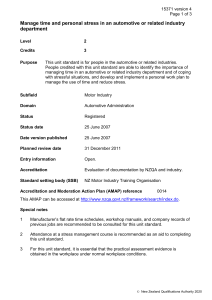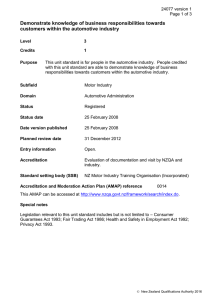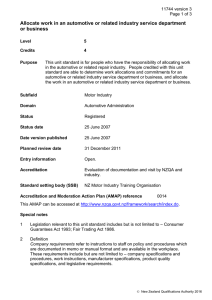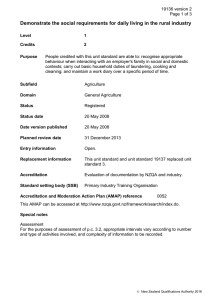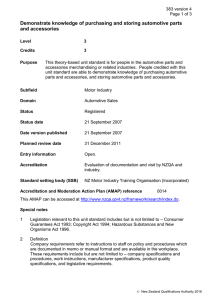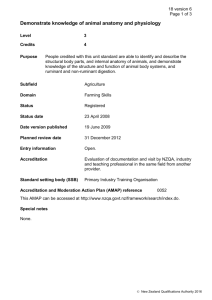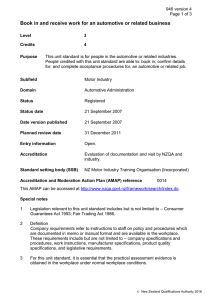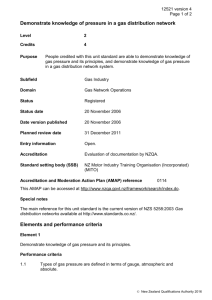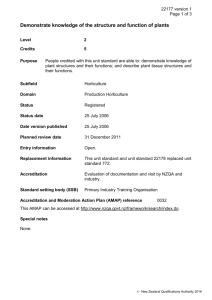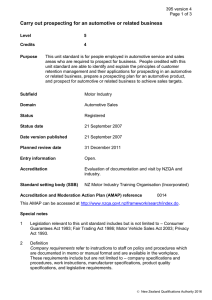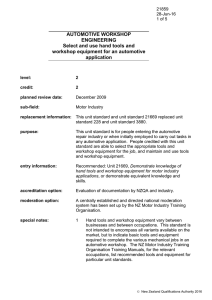Analyse and recommend storage and supporting systems for
advertisement
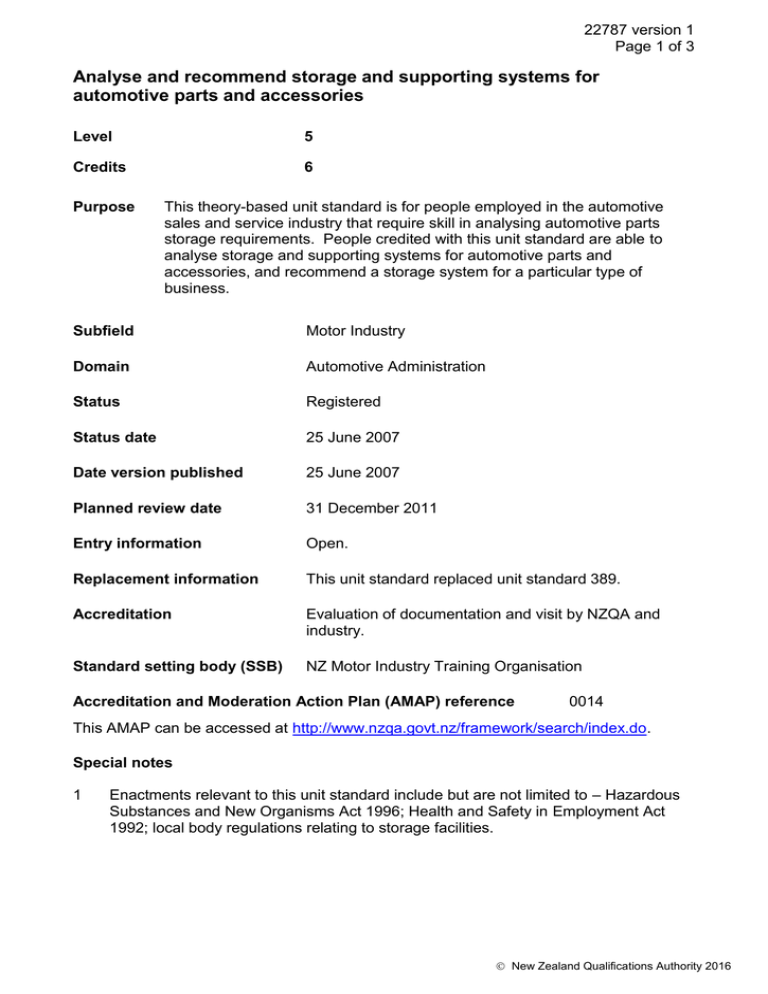
22787 version 1 Page 1 of 3 Analyse and recommend storage and supporting systems for automotive parts and accessories Level 5 Credits 6 Purpose This theory-based unit standard is for people employed in the automotive sales and service industry that require skill in analysing automotive parts storage requirements. People credited with this unit standard are able to analyse storage and supporting systems for automotive parts and accessories, and recommend a storage system for a particular type of business. Subfield Motor Industry Domain Automotive Administration Status Registered Status date 25 June 2007 Date version published 25 June 2007 Planned review date 31 December 2011 Entry information Open. Replacement information This unit standard replaced unit standard 389. Accreditation Evaluation of documentation and visit by NZQA and industry. Standard setting body (SSB) NZ Motor Industry Training Organisation Accreditation and Moderation Action Plan (AMAP) reference 0014 This AMAP can be accessed at http://www.nzqa.govt.nz/framework/search/index.do. Special notes 1 Enactments relevant to this unit standard include but are not limited to – Hazardous Substances and New Organisms Act 1996; Health and Safety in Employment Act 1992; local body regulations relating to storage facilities. New Zealand Qualifications Authority 2016 22787 version 1 Page 2 of 3 2 Definitions A particular type of business means that the candidate must nominate a particular type of business within the motor industry to base reports and recommendations on. Company requirements refer to instructions to staff on policy and procedures which are documented in memo or manual format and are available in the workplace. These requirements include but are not limited to – company specifications and procedures, work instructions, manufacturer specifications, product quality specifications, and legislative requirements. Elements and performance criteria Element 1 Analyse storage and supporting systems for automotive parts and accessories. Performance criteria 1.1 Storage and supporting systems for automotive parts and accessories currently on the market are identified. Range 1.2 shelving and bin systems, stock control systems, stock security systems. An analysis in the form of a report on storage and supporting systems is compiled in accordance with company requirements. includes but is not limited to – suitability for the type(s) of automotive parts and accessories to be stored, compatibility to the storage facilities, availability, cost analysis, supply details, comparative analysis, features including safety and security, warranties, environmental considerations, compliance with local body regulations. Range Element 2 Recommend a storage system for a particular type of business. Performance criteria 2.1 A shelving and bin system is recommended, from those in the report, that meets requirements of a particular type of business. Range budget and space available. 2.2 A stock control system is recommended, that is suitable for the type of automotive parts and accessories to be stored, the rate of turnover, and the type of operation in which a particular type of business is involved. 2.3 A security system is recommended that is suitable for the type of operation in which a particular type of business is involved. New Zealand Qualifications Authority 2016 22787 version 1 Page 3 of 3 Please note Providers must be accredited by NZQA, or an inter-institutional body with delegated authority for quality assurance, before they can report credits from assessment against unit standards or deliver courses of study leading to that assessment. Industry Training Organisations must be accredited by NZQA before they can register credits from assessment against unit standards. Accredited providers and Industry Training Organisations assessing against unit standards must engage with the moderation system that applies to those standards. Accreditation requirements and an outline of the moderation system that applies to this standard are outlined in the Accreditation and Moderation Action Plan (AMAP). The AMAP also includes useful information about special requirements for organisations wishing to develop education and training programmes, such as minimum qualifications for tutors and assessors, and special resource requirements. Comments on this unit standard Please contact the NZ Motor Industry Training Organisation jlane@mito.org.nz if you wish to suggest changes to the content of this unit standard. New Zealand Qualifications Authority 2016
